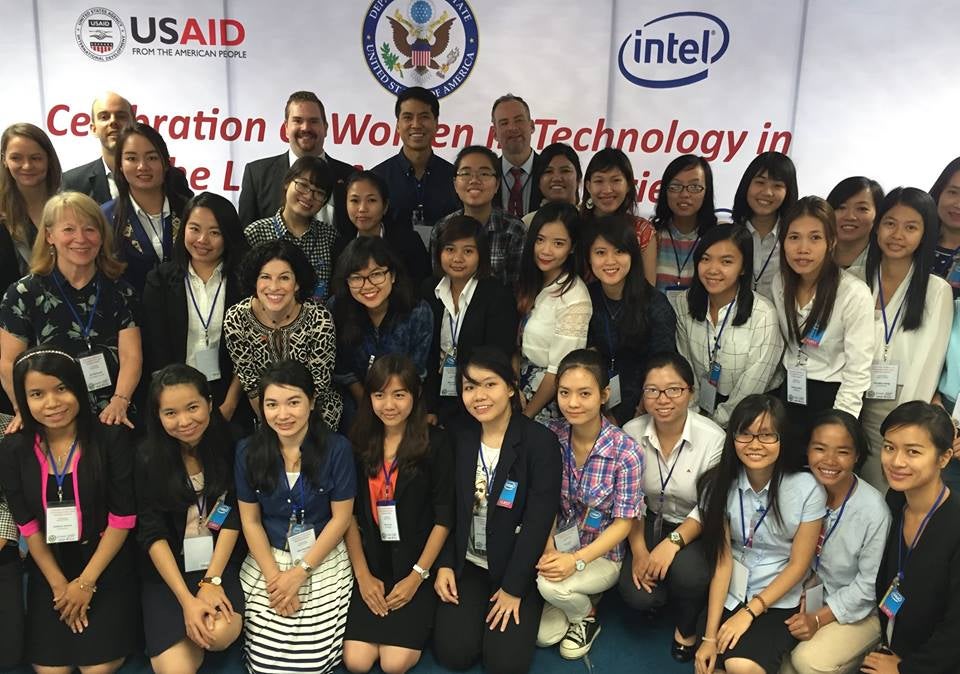A Celebration of Women In Technology in the Lower Mekong Countries of Myanmar, Vietnam, Laos and Cambodia Ho Chi Mein City, Vietnam March 2016
There are some amazing young women in Tech in the Lower Mekong Region! This week brought about 30 college-level women from the countries of Laos, Cambodia, Myanmar and Vietnam together at a fantastic event hosted by the Intel in Ho Chi Minh City, Vietnam. The 2-day COACh workshop by Prof. Geri Richmond was a unique opportunity for the participants to meet each other, to share their career aspirations, to compare the challenges and opportunities for women in science and technology in each of their countries and to learn some COACh skills. This is the first time that such an event has been held in the Lower Mekong Region so it was very exciting and very informative. Take a look at all the great pictures. Big thanks to all of the wonderful and bright participants. You rock!!
We owe a huge thanks to Intel for hosting the workshop and especially Sherry Boger, the General Manager of Intel Products Vietnam for her support and taking the time out of her very busy schedule to be part of the event. We also thank the amazing team of the USAID COMET program for organizing and providing travel and lodging support for the participants, the Science Envoy Program and the U.S. Embassy folks including Nate Rettenmayer and U.S. Consulate General Rena Bitter for their support.
COACh in Ho Chi Minh City, Vietnam October 2016
COACh Director Richmond had a wonderful opportunity to meet with a fantastic group of young women scientists at the American Center in early March. Chi Minh City Vietnam where I had a chance to meet with some fantastic young women scientists at the American Center.
Equally exciting was her visit to FabLab Saigon that was founded by Ms. Phan Hoàng Anh and her colleagues. It's a wonderful country with so many excited young people about the future of Vietnam. Although science is largely dominated by men, there are an increasing number of women getting involved in computer science and technology. The biggest challenge is that the capacity for science in their schools and universities is limited, largely by the lack of instrumentation and updated educational resources. Like many countries in this region, memorization rather than learning analytical techniques is the norm. However there are bright spots with FabLabs and Maker Faires popping up .
Special thanks to Anne Eisenhower Turnbull, the Economic Officer of the U.S. Consulate Ho Chi Minh City who helped arrange and host thevisit.
Two Weeks in Vietnam: Ho Chi Minh City (HCMC), Danang, Hue City and Hanoi December 2015
Another great visit to Vietnam. Below is the log from COACh Director Richmond's account and pictures of the people and institutions that she met with on this visit.
"It’s been a great two weeks here, bouncing between events and meetings in Ho Chi Minh City (HCMC), Danang, Hue City and Hanoi. Take a look at the pictures of the wonderful people I met on this trip to Vietnam.
While in HCMC I also met with some really bright Vietnam students at the American Center that have been involved in a Robotics Club. It was great to see their inventions and to also talk to them about their career aspirations with Dr. Jonathan Margolis from the U.S. State Department. On the following day I gave a presentation on "The Unexpected Challenges and Opportunities of a Career in Science" at the American Center to a large group of students and community members interested science and a science career. Lots of great questions from the students! As you note from the picture, we need more girls!

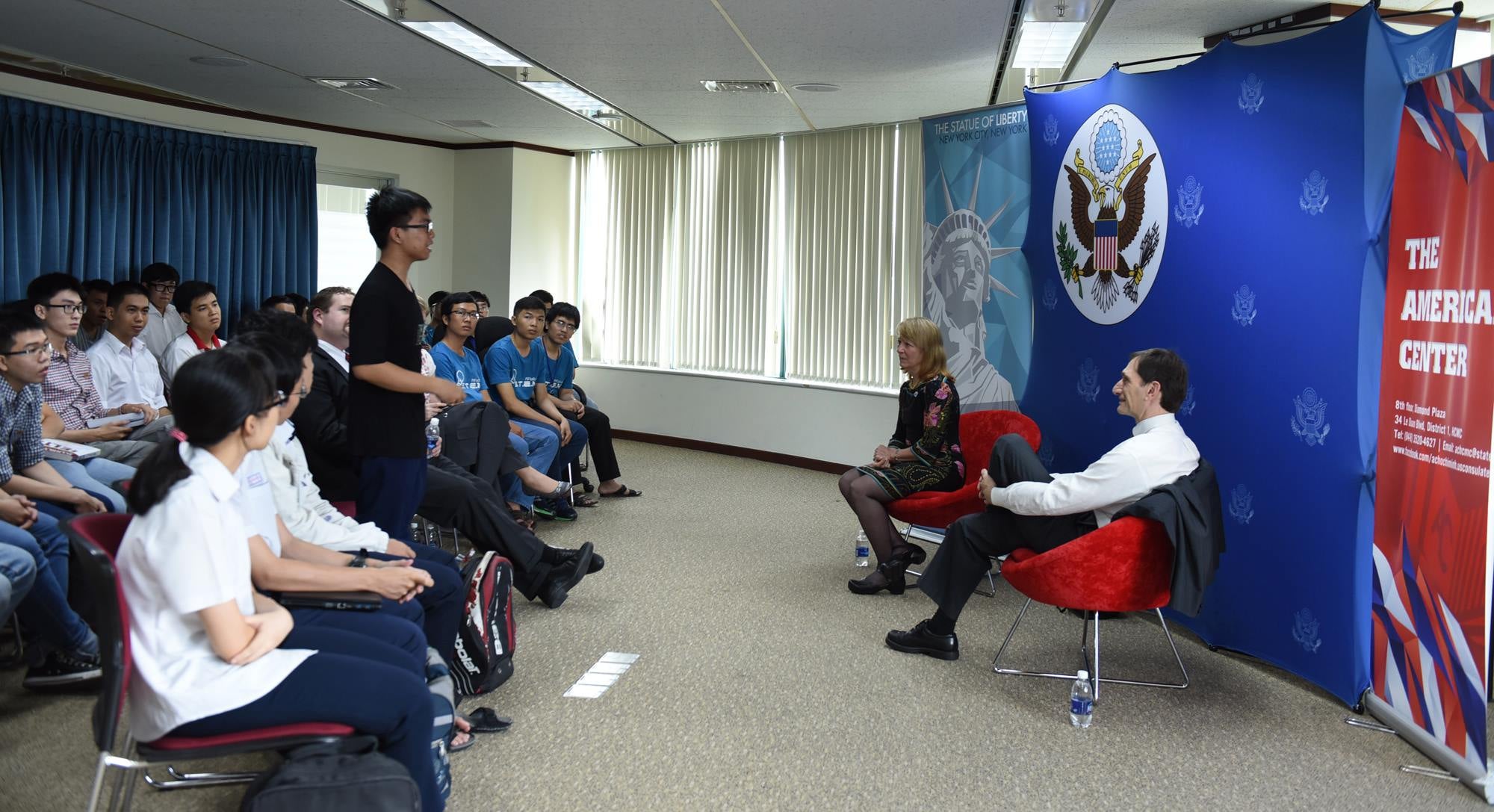
On to Danang in central Vietnam for the next few days where I gave a COACh workshops on Effective Communication to a full room of students at the Danang University of Technology and another presentation on Science Careers at the University of Education. Many students have very impressive English skills! I wish my Vietnamese was so good! Lots of great pictures to so take a look at them.
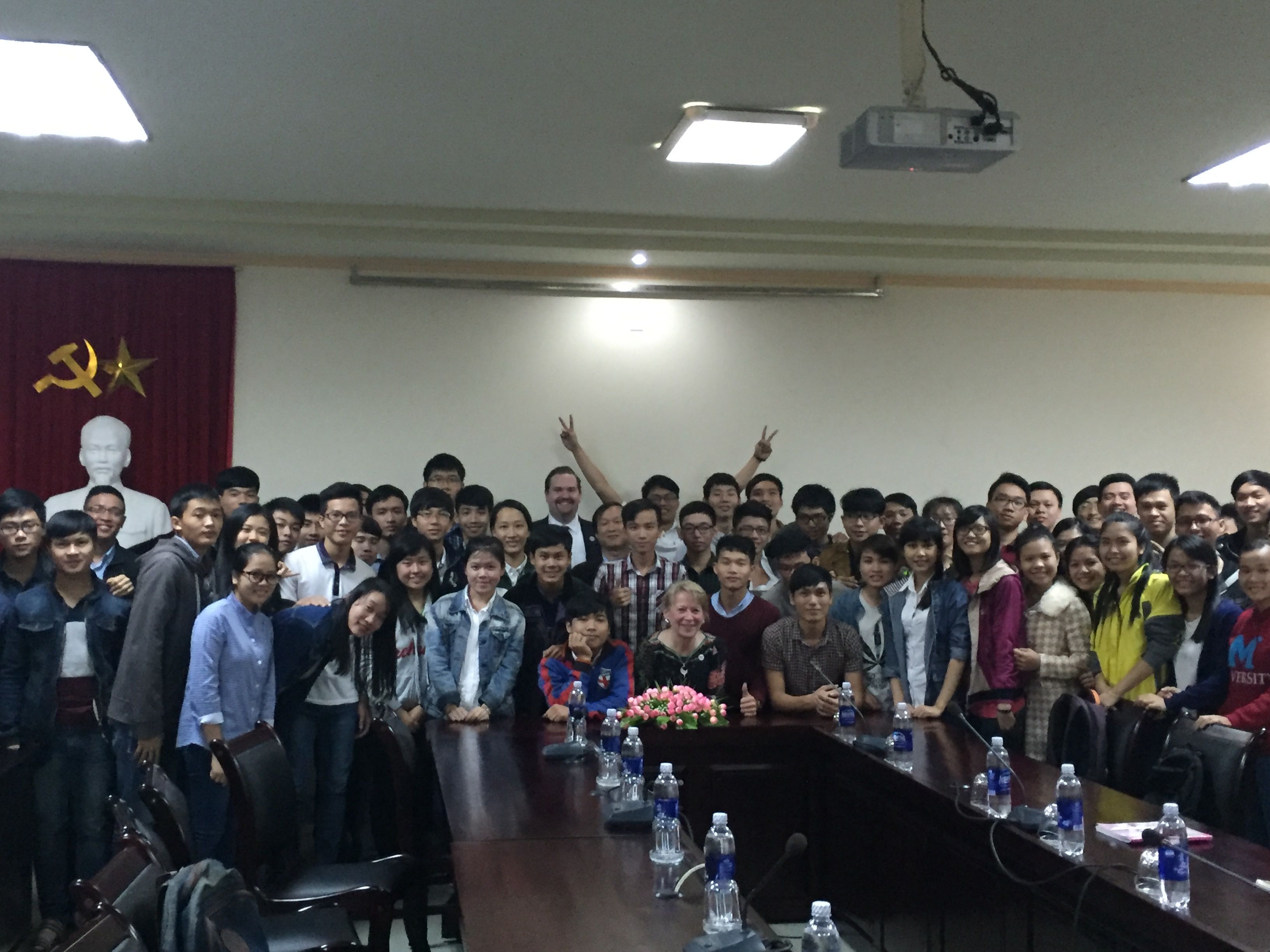

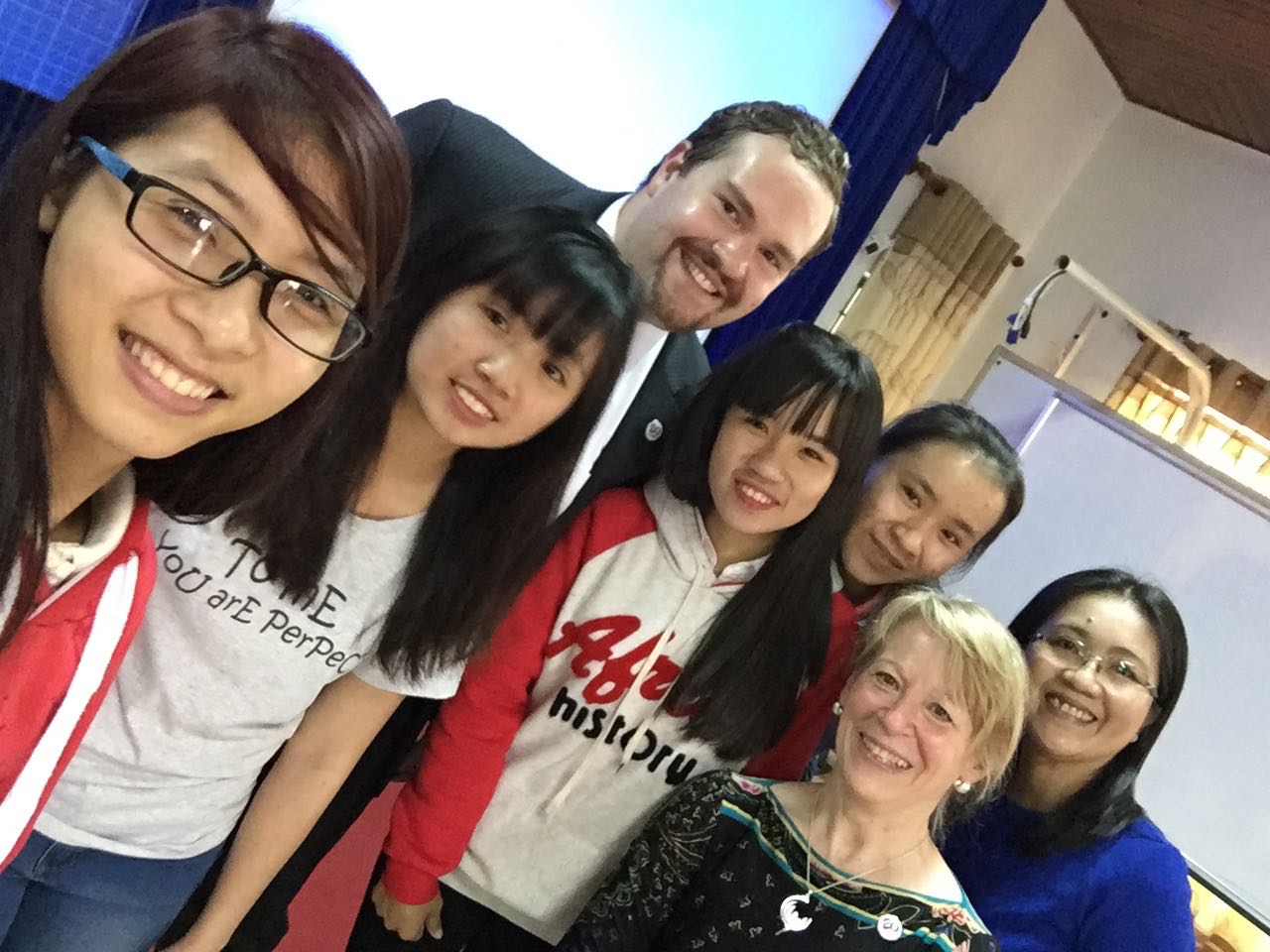
The Danang FabLab was my next stop where we did experiments with middle school students to demonstrate principles in energy, heat, crystallization and chemical change. Many students in Vietnam do not have any much science education in their schools and no possibility of doing simple experiments. The FabLab is a small space put together by Mr. Hoi Nguyen and his wife to give them such experience. https://www.facebook.com/fablabdanang They are science heros indeed! It was great (as you can see from the pictures) and makes me want to come back and so some more in other regions of Vietnam.
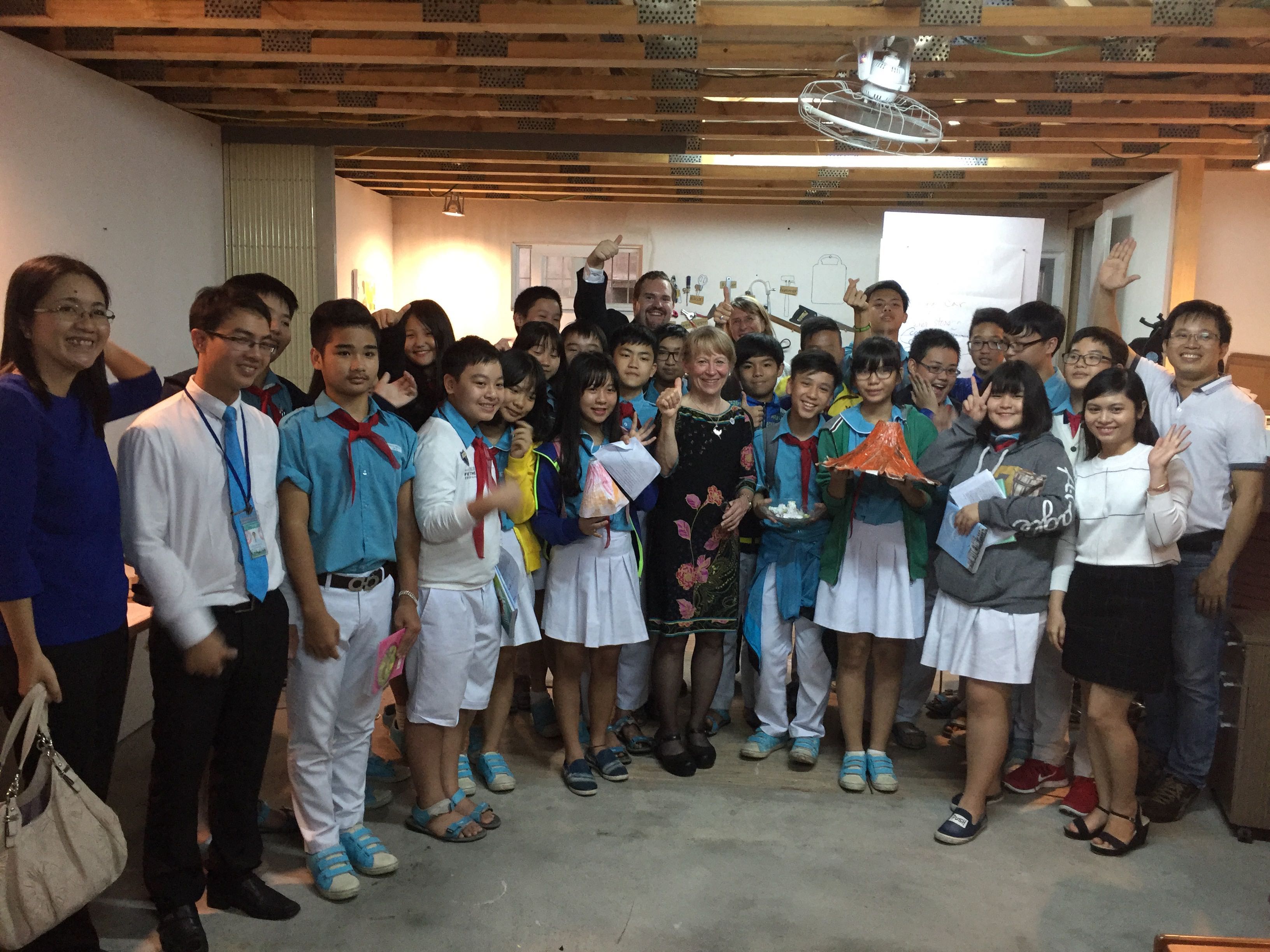
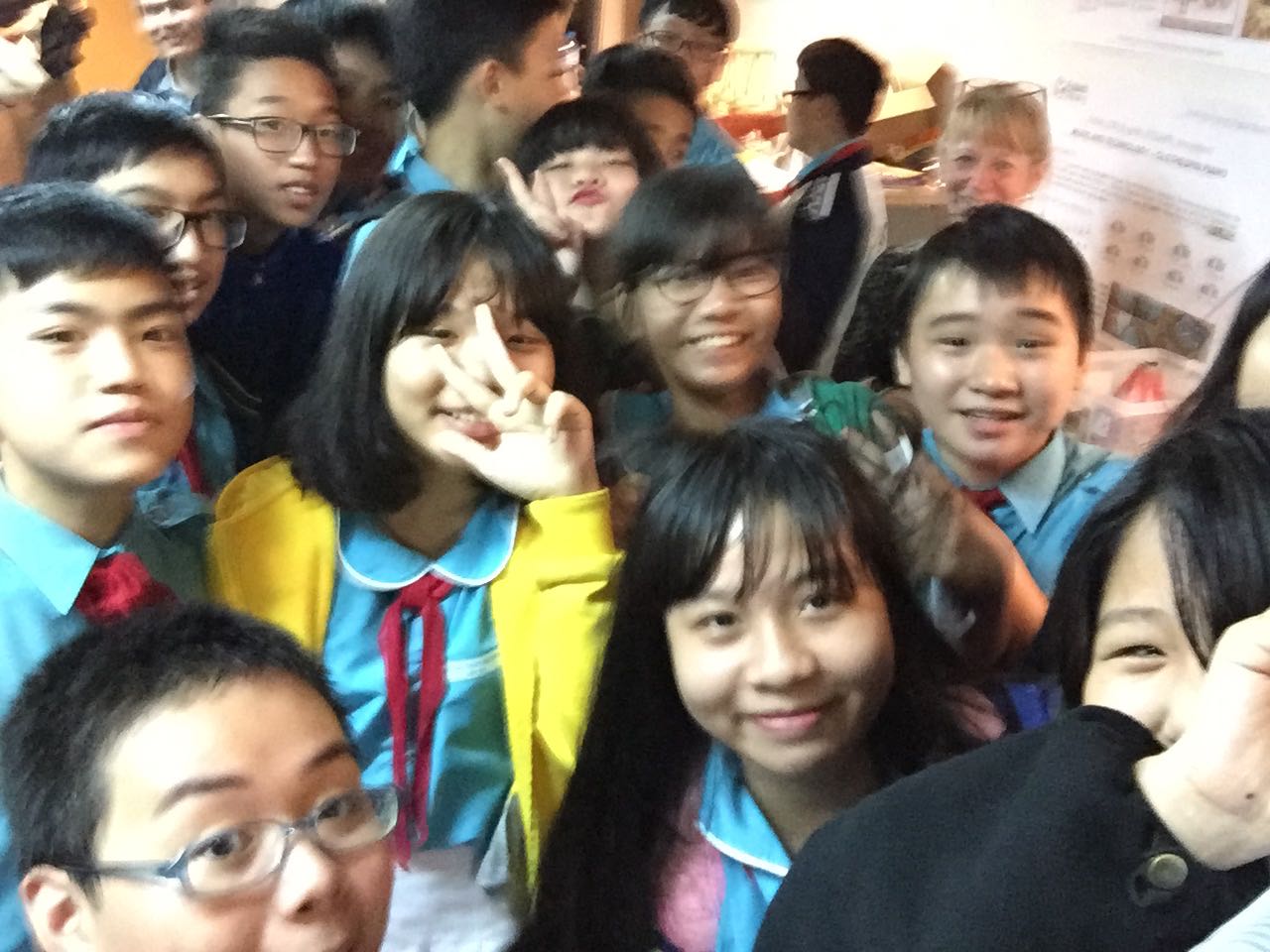
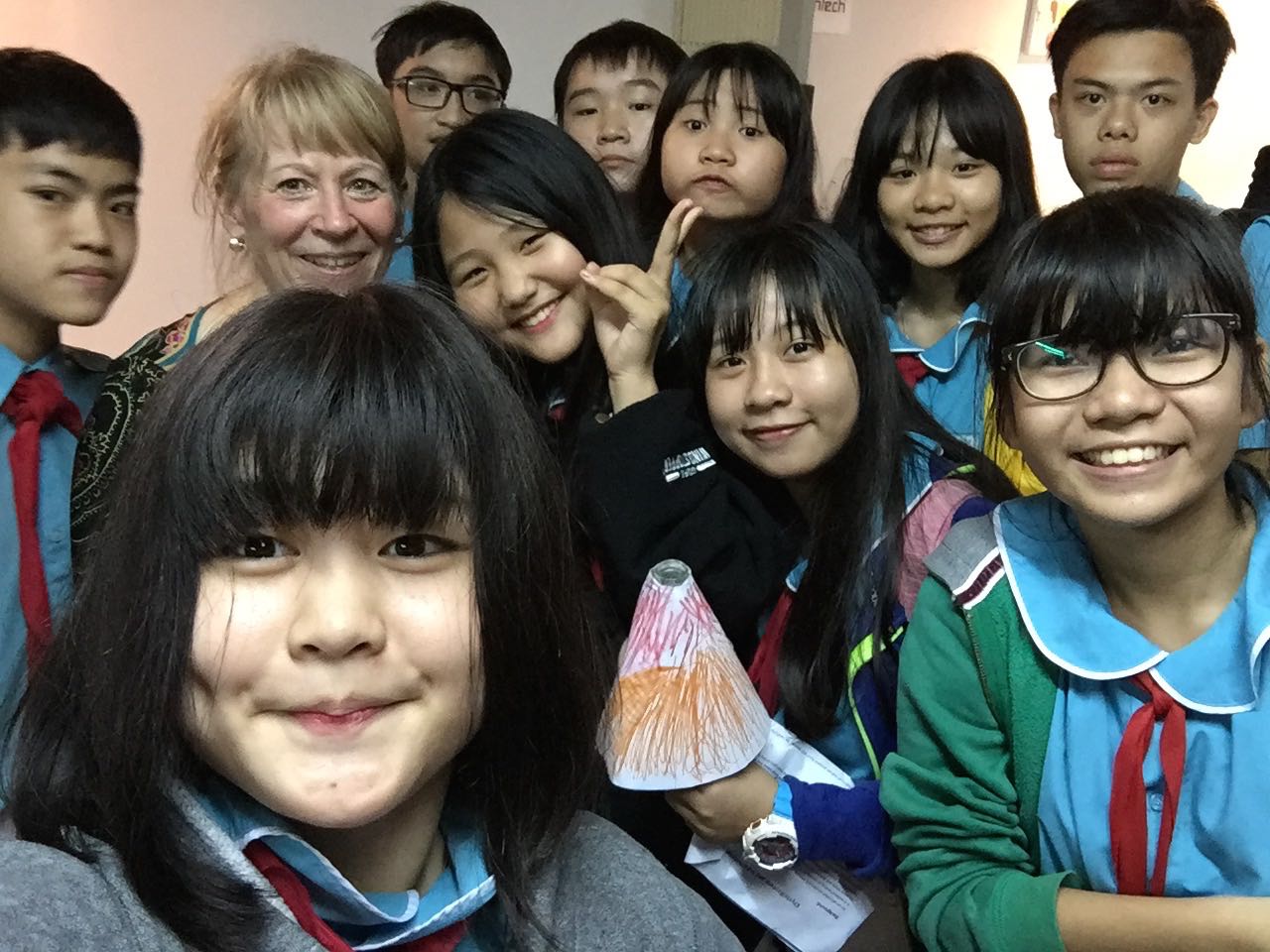
Then on to Hue City where I had the opportunity to meet with students and faculty from the Hue University of Science where I gave a scientific presentation and the Hue Learning Resource Center where I gave a talk on "Giving a Scientific Presentation". Hue is an amazing city and cultural center for Vietnam. Again, great interactions and pictures. Thank you Lan for interpreting and your support of our COACh efforts!
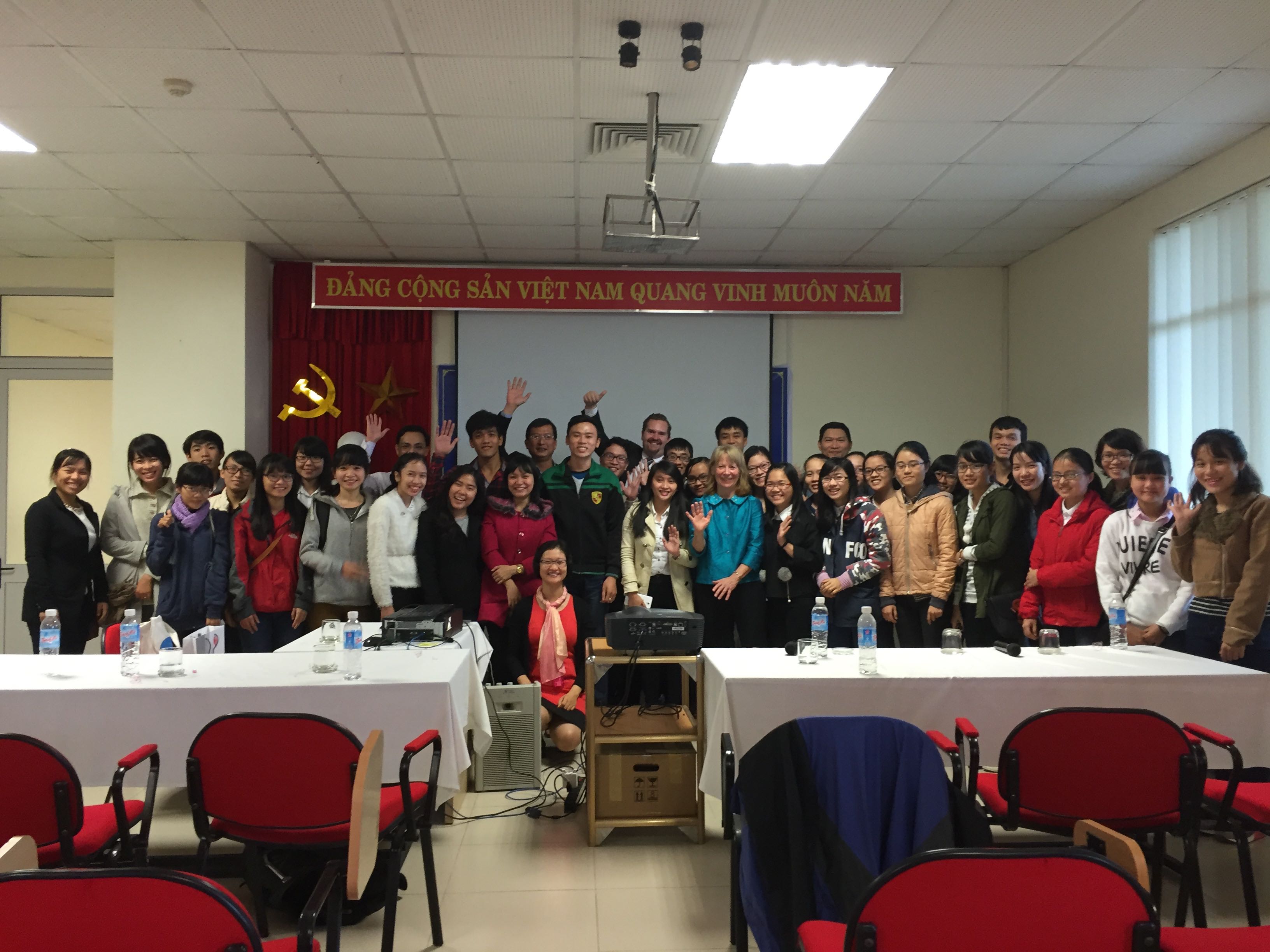
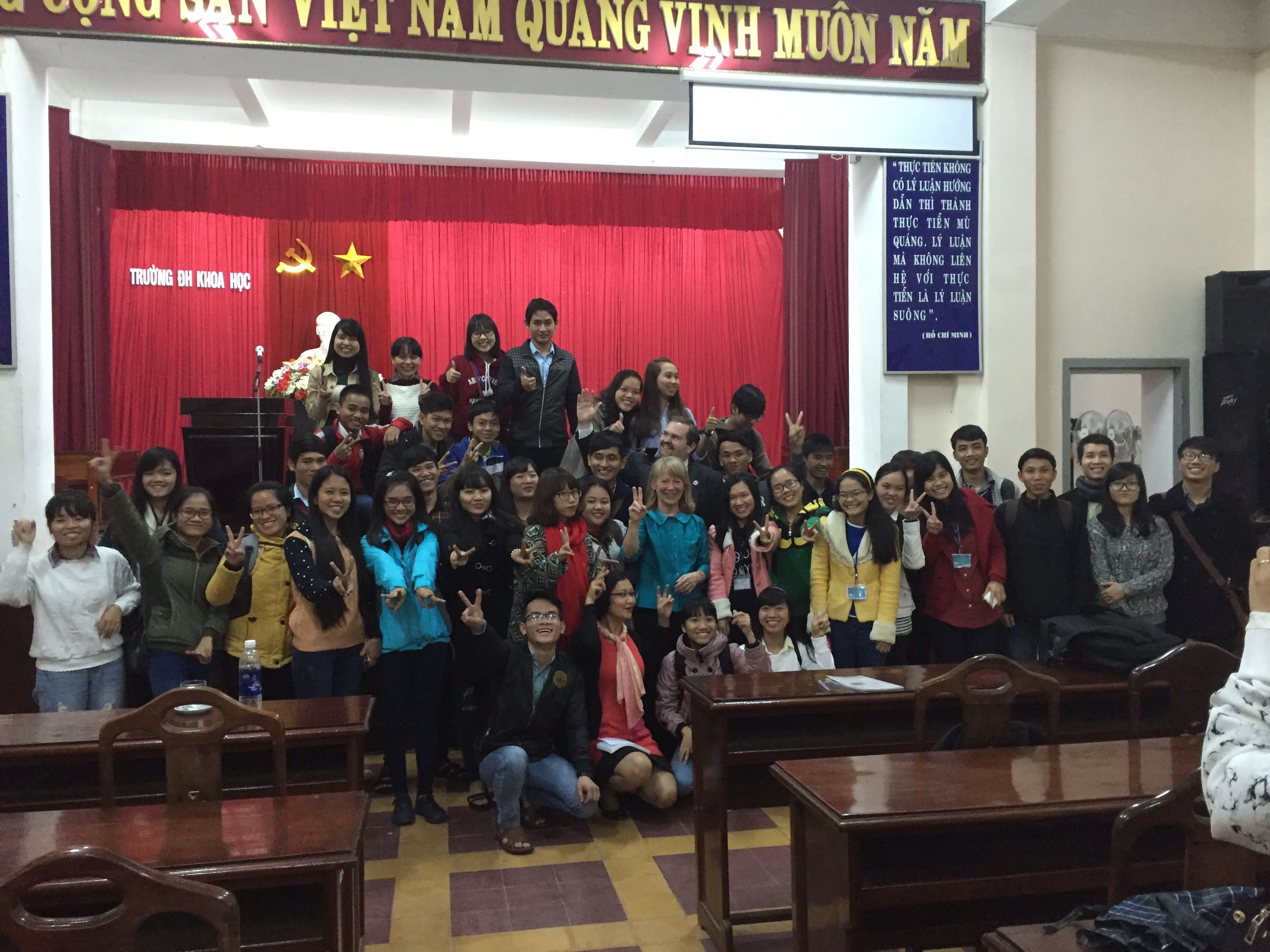
Science Students from Hue University
My final visits were in Hanoi in northern Vietnam. In the first event I was able to be part of the signing of Joint Statement of Intent between NSA and the Vietnam Academy of Science and Technology (VAST). The Statement of Intent is an acknowledgement of strong bilateral interest in cooperation on space-based research, including Earth science, weather research, remote sensing, and educational activities. It was a wonderful ceremony involving our Ambassador Ted Osius and VAST Chairman Chau Van Minh. Lots of great science and technology will result from this.
The last event was to speak at the Professional Workshop on Environmental Assessment and Climate Change sponsored by the U.S. State Department. This workshop is to help scientists from the Lower Mekong Countries discuss how they can help their governments be more informed on environmentally important issues and how current natural resources will be affected by climate change. Climate change is evident everywhere in SE Asia so efforts like these are very important.I’m now back in Ho Chi Minh City getting ready to depart for the US.
It’s been a great trip! Thanks so much to all who helped with my visit and all the wonderful Vietnamese people I met! And thanks to the US Science Envoy Program for arranging all of these events.
First visit to Vietnam Hanoi, Danang, Hue, HCMC and Can Tho January 2015
Vietnam is an exciting place to be with youth on the move in science and technology. COACh Director Geri Richmond visited many cities in Vietnam on this trip, to learn more about science and technology in Vietnam and women in science there as part of COACh and also her appointment by Secretary Kerry as Science Envoy for the region. Below are some highlights of her visit. She was accompanied by COACh member Prof. Supapan Serafin from the University of Arizona.
Centre for Natural Resources and Environmental Studies (CRES), Hanoi
At CRES, we had the opportunity to talk with women faculty as well as leaders of the University. In discussion with women faculty we learned that women have a hard time rising through the research ranks. They are underrepresented in high levels of CRES. There are no female full professors (obtaining this rank requires an act of the government). There are criteria for tenure through a point system that rewards teaching quality and publications. However, there are some difficulties as a result of the way their point system divides publication credit equally per author on a paper. The tenure clock is 5 years. The women scientists introduced themselves, and included many with international collaboration experience. Some women highlighted their research and others highlighted their collaborative partners. They would really like COACh to come back and provide career building workshops if funds can be found.
Vietnam National University, Hanoi (VNU)
Hanoi University of Science and Technology (HUST) is the largest technical university in Vietnam, with around 40,000 students in a variety of areas. The university has 200 associate and 36 full professors. HUST wants to improve their research capacity, like most other universities in the region. The Vice President wants Vietnamese government and industry to help with research setup, building labs, funding research. Regarding the women on their faculty, chemical engineering faculty is around 40% female, whereas the university as a whole is closer to 20% female. There are few (if any) female full professors, partly because decisions on full professorship are by national committees – same as for tenure decisions. Women faculty in attendance came from the schools of Chemical Engineering, Material Science and Technology, Biological and Food Technology, and Information and Communication Technology.
Geri provided an overview of COACh activities, and the Vice President readily volunteered to host a COACh workshop in the future.
University of Water Resources Campus, Hanoi
The leadership of the university provided an overview of their research areas and interests. Geri did a talk for their students and a couple of young faculty titled “Launching a Successful Career in Science.”
Danang University of Technology (DUT), Danang
At over 35,000 students, the University of Danang is one of the three biggest universities in Vietnam. It consists of six member schools: University of Technology, University of Economics, University of Foreign Languages, University of Education, College of Technology, and the College of Information Technology. The university has 2500 staff (20% PhDs), with around 100 at professor or associate professor rank. Gender development is an area of interest. Dr. Oanh is the first women in the rectorate of DUT. COACh Director Richmond was invited to give a presentation on "Launching a Successful Career in Science to DUT students and faculty. It was a very great visit!
Meeting with Students and Faculty from the Faculty of International University at the American Center, HCMC
It was a great visit to the American Center with an impressive group of faculty and students from the International University. At the end of our meeting Geri gave a COACh presentation to around 350 students and faculty on “Persuasive Communication Techniques and Scientific Presentations". There were lots of good questions and a very welcoming audience.
Can Tho University and The Delta Research And Global Observation Network (Dragon) Institute, Can Tho
Can Tho University (CTU) was founded in 1966 and enrolls about 35,000 undergraduates, 1,800 masters, and 40 PhD students. The university’s missions are training, research, and tech transfer to “serve the regional and national socioeconomic development.” To this end, CTU works with local people on the delta and upstream. In our discussion of women at CTU,
Women at CTU, the Deans of Natural Sciences and Law are woman, but there are not that many at high levels. Dr. Dung says they have good gender balance. Almost 100 Associate Professors but less than 50% female (U.S. closer to 8%). Total staff and total students are around 50% female. Geri gave a talk to students and faculty of CTU titled “Strengthening Bonds Between U.S. Scientists and Those in Vietnam.” Around 100 students attended, with ~40% female.
After the presentation Richmond had an opportunity to meet the Chemistry majors! Good "high 5" event!

